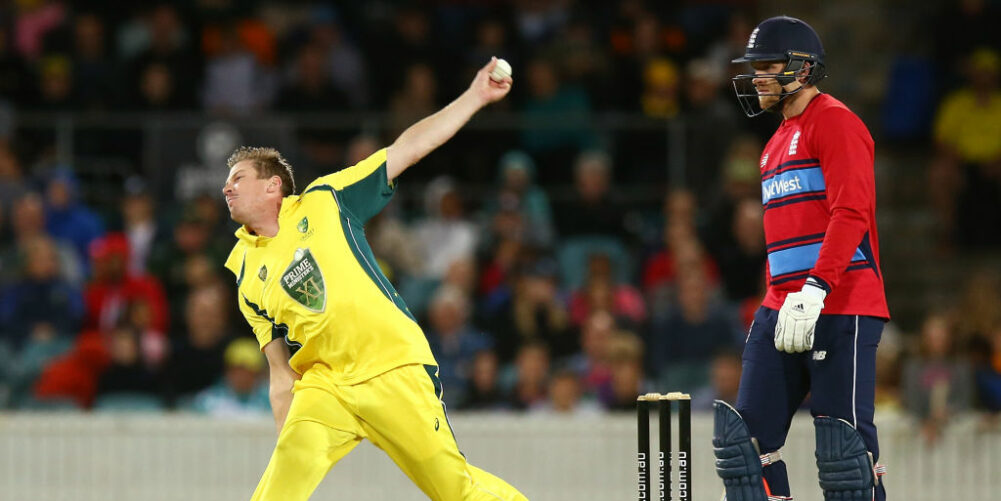The modern media age, so it has long been observed, is defined by the 24-hour news cycle.
As cable television news grew and the ‘blogosphere’ quickly followed, the need for speed in production of content resembles something of a perpetual motion machine. Faster! Faster!
During my time in professional politics, you could almost park that in favour of four six-hours cycles, such was the thirst for the next thing, whatever it was…
During the week, we saw evidence of that window narrowing again when Australia rose to an Instagram post (and tweet) from James Faulkner, seemingly outing himself as the nation’s first openly gay professional cricketer.
There’s a lot to unpack about the rise and disappearance of what was on track to being one of the biggest cricket stories the year – rightly or otherwise. To begin, in case you missed the flash storm, let’s recap.
Faulkner, who is on the outer concentric circle of international cricket nowadays, but four years ago was player of the World Cup Final, posted an image with his mother and a man he identified as his ‘boyfriend’ on his birthday. “#togetherfor5years” he hashtagged.
In the replies, several cricketers – including Australian colleagues David Warner and Glenn Maxwell, issued what appeared sincere and supportive messages. News stories, in India to begin, reported the post. Australian newsrooms followed suit. It exploded online.
The all-rounder, upon waking up himself, quickly added “best mate!!!” in brackets next to boyfriend. Uh oh. Cricket Tasmania’s chief executive fired up on twitter, hinting that news organisations would regret writing the ‘coming out’ story on the basis of the missive. Faulkner himself jumped back on Instagram thereafter, stating “there seems to be a misunderstanding” before saying it was five years they had been housemates.
Despite Faulkner not being a contracted player, Cricket
Australia weighed in with an earnest statement of their own, turning the guns
on the media.
“Cricket Australia does not consider the social commentary this morning from James
Faulkner to be a joke, nor does James,” it began. “His comment was made as a
genuine reflection of his relationship with his business partner, best friend
and housemate of five years.”
They closed with the usual form of words used when
apologising – but not really: “Cricket Australia apologises for any unintended
offence.”
The story was dead. The media were to blame for not checking. The end. Okay. Let’s pause at this point. Take a deep breath to think about this – exactly as Faulkner and CA spinners should have done instead
of trying to kill the yarn in its tracks. Yes, they had been successful in this
mission, but at what cost?
There is far too much history and context to adequately detail in a column when it comes to Australia’s relationship to homosexual men, but let’s just say it isn’t flattering. Where Faulkner is from, for example, it was illegal for men to be gay – full stop – until 1997.
The data around gay men and suicide, although far from exclusively an Australian epidemic – is harrowing. Of the 100-plus professional men who play cricket in Australia, none of them identifies as gay. It is mathematically impossible to imagine that this is the case in reality.
There is no reason not to take Faulkner at his word, but the
fact that the outcome was inadvertently trivialising ‘coming out’ is something
that should have been immediately evident. In the space of a couple of hours,
gay members of the community, including several friends of mine, expressed
overwhelming joy that someone of his standing in the hypermasculine world of
cricket would come out. Only for it to emerge that it was a bit of tone-deaf
horseplay.
Would it have been that hard for Faulkner’s advisers, and administrators more so, to realise this was more important than the cricketer’s brand at this stage? Without much trouble at all, a huge degree of sincere contrition and empathy could have been applied for what had taken place with responsibility taken for it. Crushing the story wasn’t everything this time.
And what about those Australian cricketers who do lead
actively gay or bisexual lives? There are plenty – they are just in the women’s
team. Again, I’m sure this was the last thing on Faulkner’s mind when hitting
‘send’, but these are young people have gone through the often traumatic
process. In the case of actively gay footballers in Australia, young people are
constantly and brutally abused on social media for it.
Cricket Australia were nothing short of magnificent in 2017
in their support of the marriage equality plebiscite that divided the nation so
unnecessarily. Their record speaks for itself in terms of advocating that
cricket be an entirely safe sport for players and supporters of any gender and
sexual preference. They have played their role in making Australia better.
And a strong theme of the commentary following this
unfortunate episode is that the sincere response from those to Faulkner who
hought his post was legitimately a ‘coming out message’ is that when it does
happen, for real, that everything will be okay. That the public will have their
back.
Perhaps, and let’s hope so. But let’s not underestimate that
challenge, either, with many Australians, evidenced by the plebiscite, still
holding vehemently homophobic beliefs. The culture war that has pervaded
Australian life since 1995 has plenty of steam left in it yet.
There was a window here to make another contribution to
helping aid this conversation. To have taken this unexpected mis-step to reinforce
the values that the organisation prides itself on and explain that it wasn’t
something that didn’t risk damage to an already vulnerable group. By smothering
the story, an opportunity was missed. By giving an inch, and acknowledging the
consequences of Faulkner’s words, they could have gained several more.
There are some things more important than the news cycle.















